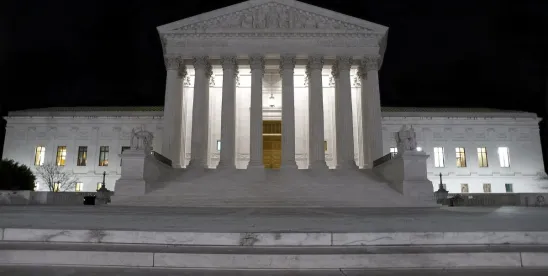On April 17, 2024, the Supreme Court of the United States held that an employee challenging a job transfer in an unlawful employment discrimination claim under Title VII of the Civil Rights Act of 1964 must show that the transfer caused some identifiable harm, but the harm does not need to be significant.
Quick Hits
- The Supreme Court ruled that employees challenging job transfers under Title VII do not need to show that they faced significant harm.
- The ruling could open the door for more Title VII discrimination claims beyond those alleging traditional claims over adverse employment actions, including potentially reverse discrimination claims challenging employer DEI programs.
The Supreme Court decision in Muldrow v. City of St. Louis rejected a standard that employees show that a transfer caused a “materially significant disadvantage” or any other heightened bar, resolving a circuit split on this issue.
The decision revived a female police officer’s claim that a forced lateral job transfer to a less prestigious position that had the same pay but had different hours and responsibilities, among other differences, was allegedly because of her sex in violation of Section 703(a)(1) of Title VII.
“What the transferee does not have to show … is that the harm incurred was ‘significant,’ … [o]r serious, or substantial, or any similar adjective suggesting that the disadvantage to the employee must exceed a heightened bar,” Justice Elena Kagan wrote in the Court’s opinion. Three justices filed separate opinions concurring with the judgment.
The ruling in the closely watched case eases the path for Title VII claims over job transfers and could potentially open the door for more Title VII discrimination claims beyond those alleging traditional claims over adverse employment actions, namely hiring, firing, and promotion decision, including reverse discrimination claims challenging employer diversity, equity, and inclusion (DEI) initiatives. Such claims have faced increased scrutiny since the Supreme Court’s June 2023 decision on race-conscious admissions in higher education.






 />i
/>i

